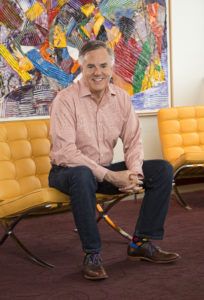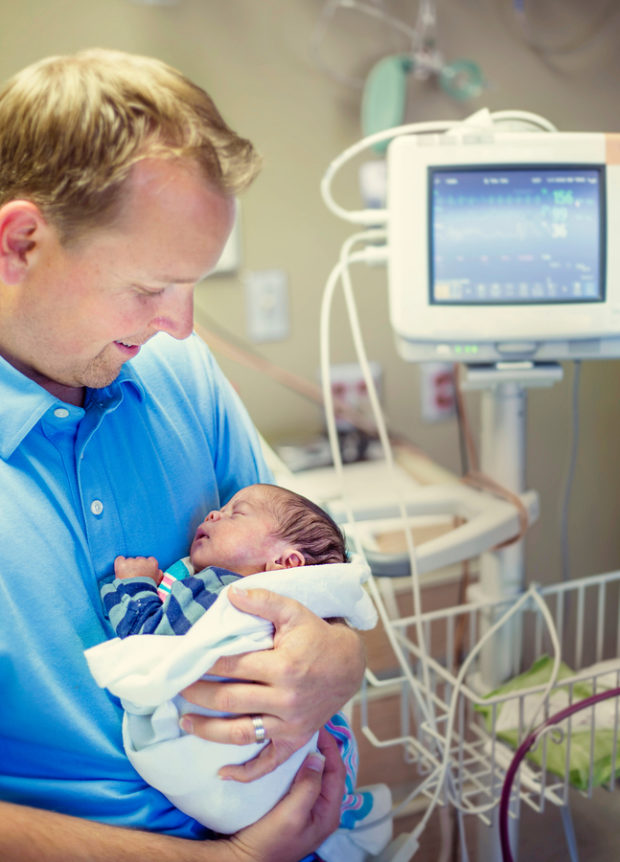Employees of all ages work at Sheboygan, Wisc.-based Acuity Insurance, and while other carriers find it hard to attract the youngest generation, CEO Ben Salzmann has a formula that starts when some of them are infants.
Building “a long-term relationship based on trust” is one of the three keys to success in attracting the next generation, he said.
Explaining how it’s possible to develop such a relationship, Salzmann suggested that it’s not enough to show up on campus to interview graduating seniors. “It’s very easy because we sponsor and just donated another $2.5 million dollars to the local neonatal intensive care unit. It’s the only NICU between Milwaukee and Green Bay.”
 “We start our relationship with employees at their challenged birth, and their parents see Acuity every day they go into that NICU. And their parents are saying, ‘Someday you want to be able to work at Acuity.'”
“We start our relationship with employees at their challenged birth, and their parents see Acuity every day they go into that NICU. And their parents are saying, ‘Someday you want to be able to work at Acuity.'”
That’s not enough, however, the carrier leader asserted. “We’re running chess tournaments starting at the kindergarten age. We’re starting spelling bees in the second grade,” he said, also rattling off other activities such as math competitions and a Cool Picks reading challenge, along with sponsoring 4-H and Junior Achievement development programs. “Everything is hosted inside of our building. Come on in. We’re serving pizza. We’re bringing in a live band, here is a gift and ride our huge indoor Ferris wheel. And they all leave saying, ‘I want to work at Acuity,'” he said.
By the time youngsters are graduating from college, “we have got a 20- to 22-year pipeline who have a long-term relationship based on trust with Acuity.”
To top off the process, frying bacon on campus is involved in Acuity’s recruitment process, according to Joan Ravanelli-Miller, general counsel and vice president of human resources.
According to Salzmann, Acuity’s three-part formula for attracting the next generation, for motivating employees and retaining them, starts off with “fierce respect for the individual” and the pursuit of answers to “the most pragmatic, most difficult question” each member of a carrier leadership team can ask: “What would I want in that person’s position?”
“If you’re a new college grad, across the board, people want opportunity. And that’s daunting. Management teams looks at a group of new hires and [think], ‘Wow, do they want my job? Do they want to do more than they’re capable of doing? How dare they? We have to keep them in their place.'”
Salzmann continued: “We thank those management teams because it makes life very easy for us. We want our coworkers to thrive, to expand, to reach high enough that they make mistakes and learn from the mistakes.”
“So, the very first thing is fierce respect for the individual, and you do that by genuinely looking at what you would have wanted in their place and answering it honestly,” he said. During a phone interview with Carrier Management in January, Salzmann filled in a list of employee benefits, employee communications and fun social activities that he and his leadership team put in place in coming up with the answers. He used Maslow’s hierarchy of needs pyramid to explain the motivations for items ranging from unlimited sick leave to parties around a charity Ferris wheel to simply empowering employees to move strategic initiatives forward. (See related article: “Leader Sets the Tone at Acuity Insurance.”)
Filling in the remaining piece of the three-part formula, Salzmann said, “There is an evolution across generations. There are cultural shifts. While 40 years ago, people did believe in helping charities, now the newest graduates have that as a very core personal need. They need to feel like they’re helping other people. They need to feel like they’re making a difference. It’s beyond a United Way-fits-all approach. It’s on an individual, personal relationship. Employees want to see the people they are helping, they want to feel that they’re making a difference,” he said.





















 Earnings Wrap-Up: AXIS Expanding Insurance Biz, Shrinking Re Book
Earnings Wrap-Up: AXIS Expanding Insurance Biz, Shrinking Re Book  Chubb CEO Greenberg on Personal Insurance Affordability and Data Centers
Chubb CEO Greenberg on Personal Insurance Affordability and Data Centers  Allianz Built an AI Agent to Train Claims Professionals in Virtual Reality
Allianz Built an AI Agent to Train Claims Professionals in Virtual Reality  Modern Underwriting Technology: Decisive Steps to Successful Implementation
Modern Underwriting Technology: Decisive Steps to Successful Implementation 



